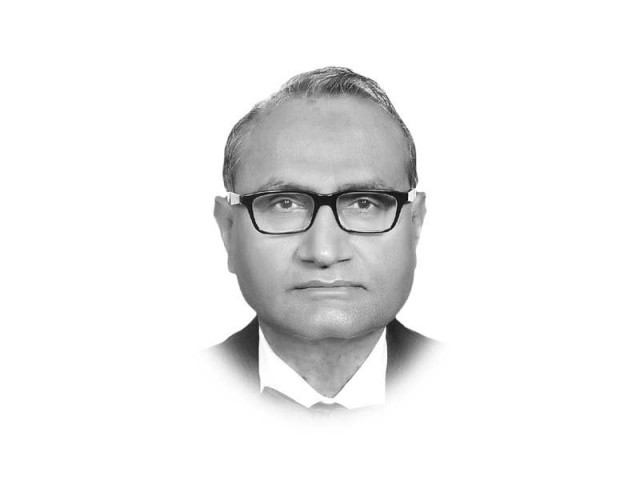Behind the Saudi interest in Pakistan
Pakistan has a history of depending on Saudi assistance in times of crisis

The writer is a senior economist. He can be contacted at pervez.tahir@tribune.com.pk
The $21 billion worth of MoUs signed during the visit of the Saudi Crown Prince, Mohammad bin Salman, fall in a different category. Like most economies dependent on the non-renewable oil resource, the long-term Saudi goal has always been to diversify her economy by increasing the share of non-oil sector.
For the most part, the development of the latter has been illusory, reflecting essentially the ebb and flow of oil prices. In the last two decades or so, the shale oil revolution, global rise in energy efficiency and the development of affordable alternative energy sources have underscored the urgency of diversification.
In April 2016, the Crown Prince, who then was Deputy Crown Prince, spearheaded Vision 2030. Like our own visions that were never followed up by how-to programmes, the initial reactions were one of doubt, even dismissiveness.
By June of the same year, the Council of Economic and Development Affairs, of which the Crown Prince continues to be the head, had come out with a National Transformation Programme specifying roles and responsibilities for implementation. Subsequently, a number of Vision Realisation Programmes were launched to achieve results of various initiatives. Finally, there is an updated Delivery Plan 2018-2020.
The Vision envisages Saudi Arabia as the heart of the Arab and Islamic worlds, the investment powerhouse, and the hub connecting three continents. A Public Investment Fund (PIF) has been created as a vision realisation programme.
This fund is the main instrument of diversification through local as well as international investment. The objective is to make it “one of the largest sovereign wealth funds in the world, as well as to build strong economic partnerships to deepen and strengthen the impact and role of Saudi Arabia on the regional and global stages”.
The Crown Prince himself is chair of the PIF. This has led to strategic partnerships programme. The PIF has developed a portfolio of direct investment in global companies. Besides Pakistan, seven countries are being targeted for deeper investment, trade and security cooperation. Key investments include refineries in Pakistan and India by Aramco, which itself is positioning to enter sectors other than oil.
A major initiative is to leverage the Chinese One Belt, One Road initiative and CPEC in Pakistan to achieve the strategic objectives of Saudi Vision 2030. The establishment of a Joint Pak-Saudi Supreme Coordination Council at the highest level to oversee the process of concretising the MoUs is again an analogue of the institutional mechanisms laid out to operationalise the Saudi Vision.
Its first meeting has already been held in Islamabad. The joint statement describes these as “key steps in shaping new trajectory in bilateral relationship”.
In Pakistan, the periods of high economic growth in the past have invariably been associated with a shot in the arm from abroad. First it took the form of grants and concessional assistance, then loans and credits and now foreign investment.
However, the expected inflows of investment are not the result of any meaningful reform or improvement in the ease of doing business index. Rather, these investments are originating from China, Russia and Saudi Arabia, countries where investment decisions are guided by the state. They have decided to invest.
We have not attracted them into investing. Our economic revival will surely be ignited, as and when the agreed investments in energy, minerals and agriculture materialise, but sustaining this growth over a longer period will remain a dream without domestic economic reform.
Published in The Express Tribune, February 22nd, 2019.
Like Opinion & Editorial on Facebook, follow @ETOpEd on Twitter to receive all updates on all our daily pieces.
















COMMENTS
Comments are moderated and generally will be posted if they are on-topic and not abusive.
For more information, please see our Comments FAQ